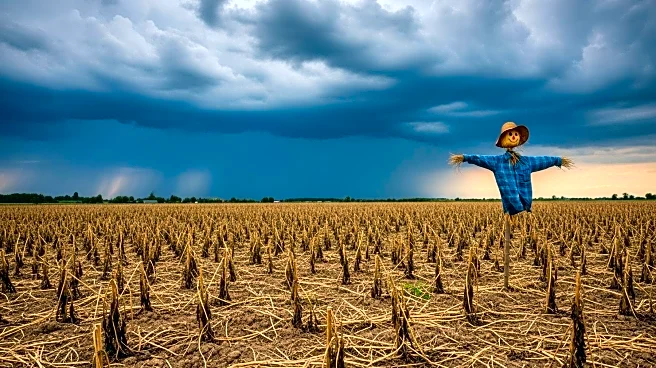What's Happening?
Farmers in Newfoundland and Labrador are experiencing a crisis due to an unusually hot and dry growing season. Wayne Simmons, president of the Newfoundland and Labrador Federation of Agriculture, reports that the adverse weather has led to significant challenges, including crop failures and difficulties in sourcing feed for dairy cows. The situation has forced some farmers to consider reducing their livestock, which could impact their income. Berry farmer Phillip Thornley notes that the lack of water has resulted in smaller and less ripe fruits. The ongoing climate change is a contributing factor, prompting farmers to consider new strategies such as irrigation to adapt to changing conditions.
Why It's Important?
The agricultural crisis in Newfoundland and Labrador underscores the broader impact of climate change on farming communities. As weather patterns become more unpredictable, farmers face increased risks to their livelihoods and food production capabilities. The situation highlights the need for adaptive measures and support from government programs to help farmers mitigate the effects of climate change. The potential reduction in agricultural output could also affect local food supply and prices, impacting consumers and the regional economy.
What's Next?
Farmers in the region may need to invest in irrigation systems and other adaptive technologies to cope with future dry seasons. Government funding, such as the $7.5 million announced for climate change projects, could provide necessary support. The agricultural community will likely continue to advocate for more resources and policies to address the challenges posed by climate change, ensuring the sustainability of farming in the region.









